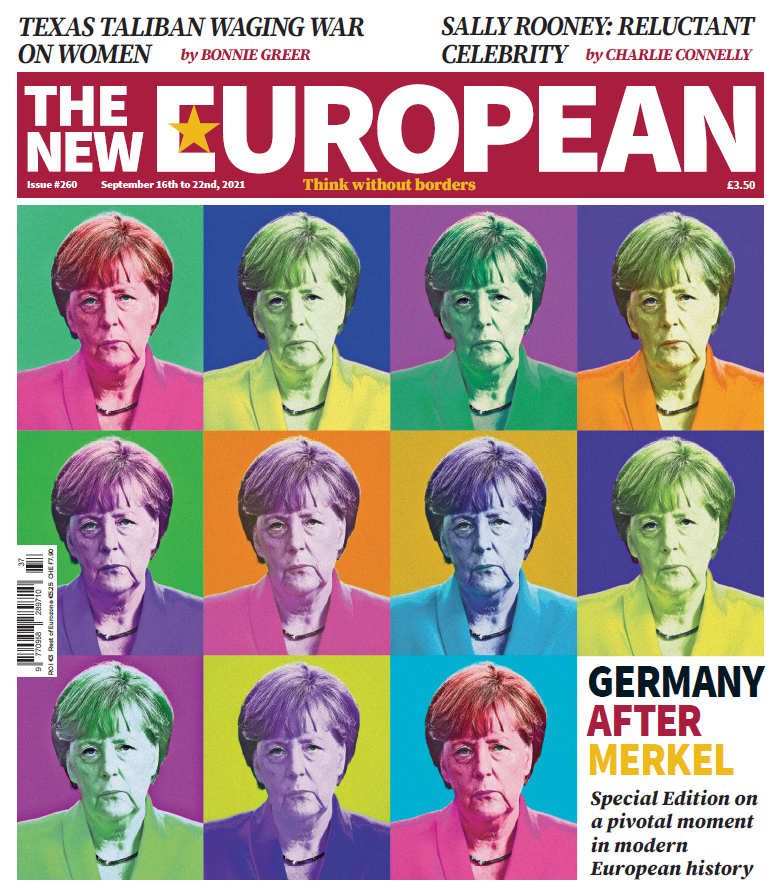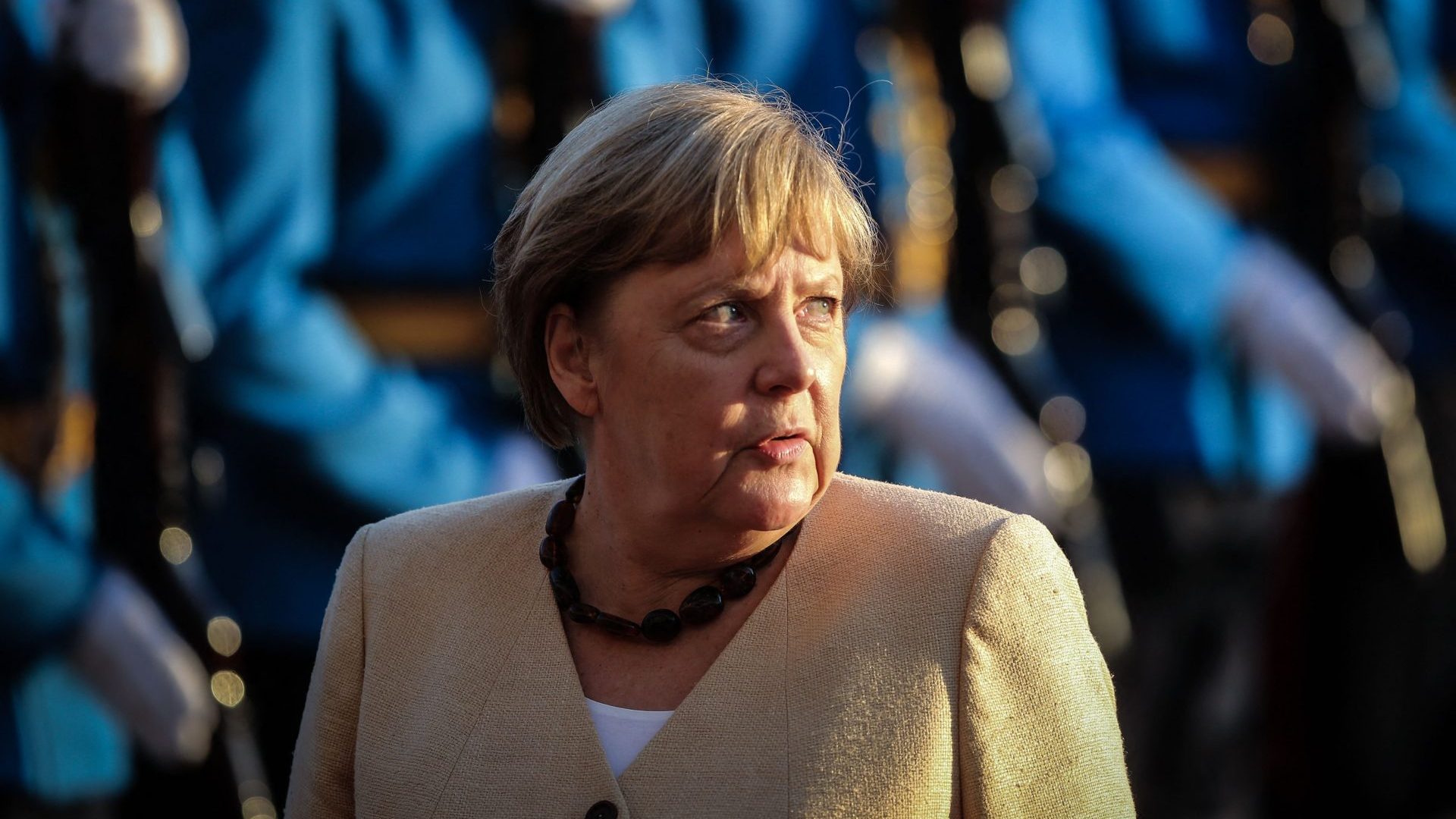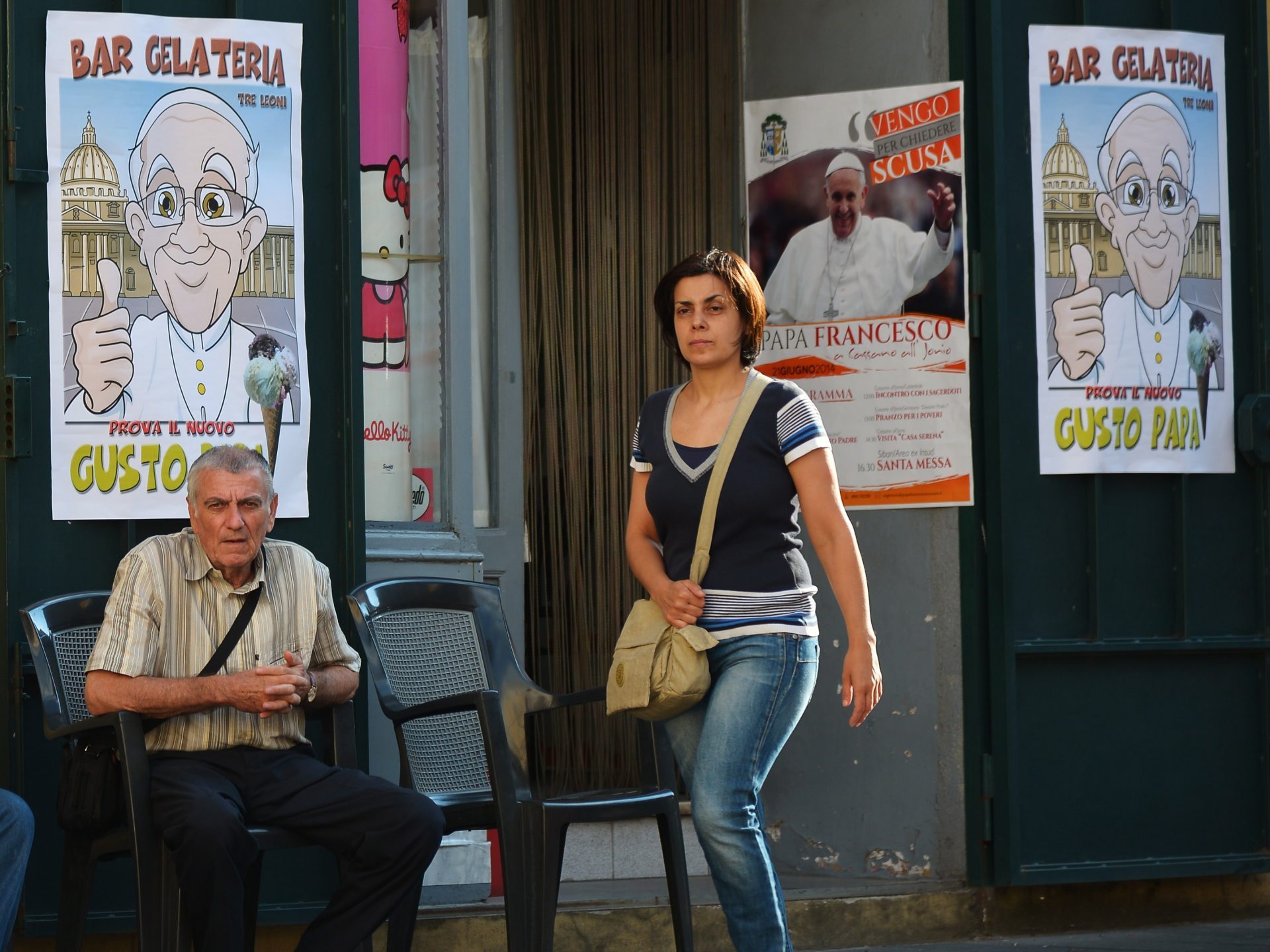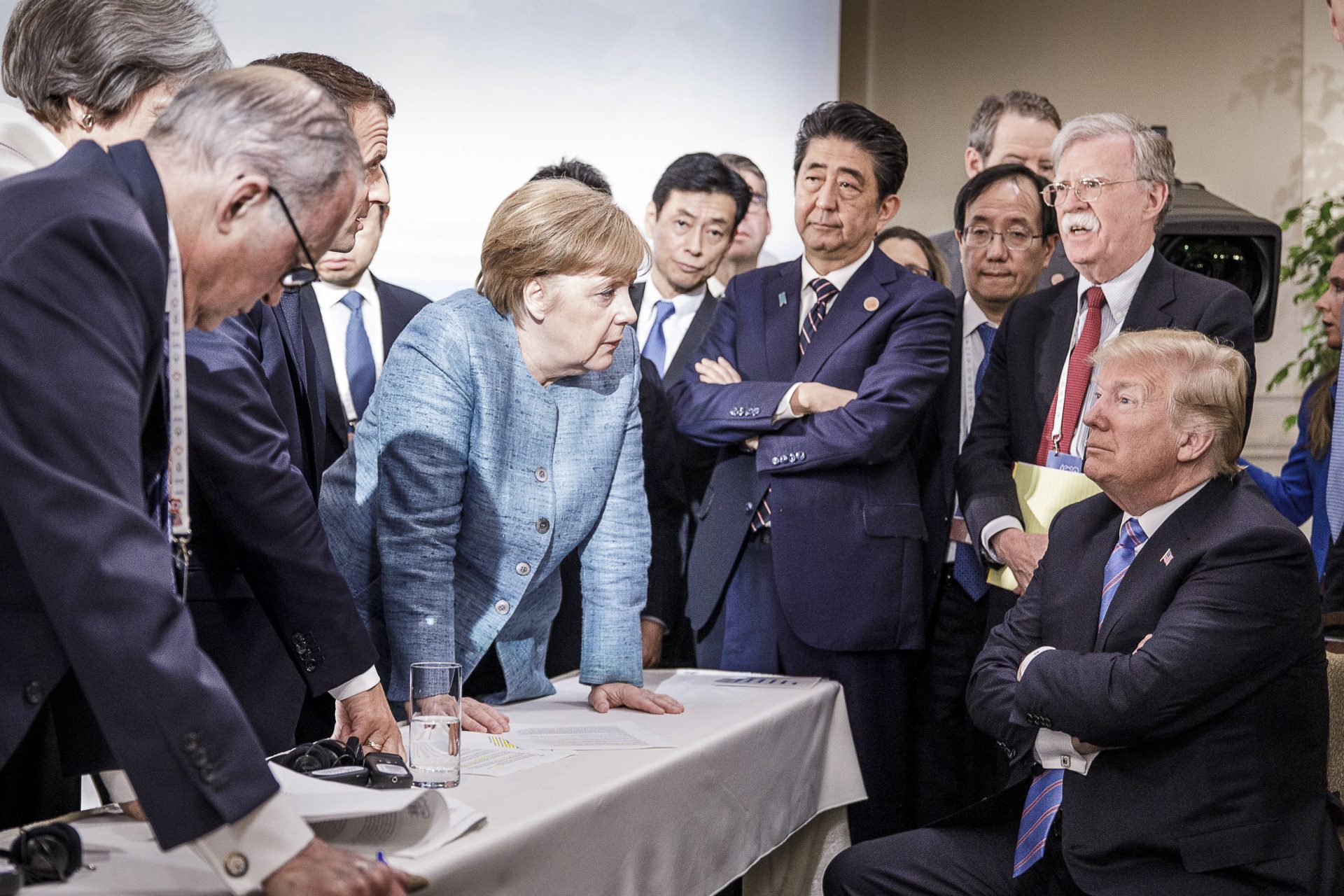The knives are being sharpened. The world is waiting with bated breath. As Germans go to the polls on September 26, for the first election in a generation without Angela Merkel, they wonder with increasing concern what the future holds without the woman who personified their hopes and fears.
They see the climate emergency through the apocalyptic floods of the early summer; they fear a succession of health crises and crave competence; they watch as the American post-war model disintegrates as the authoritarianism of China and trouble-making of Russia infiltrate their daily lives. Who will protect them now? The most gloomy among them wonder what has happened to the country of Konrad Adenauer and Helmut Kohl, of Willy Brandt and Helmut Schmidt.
This has been both an enervating and strangely intriguing campaign. It has darkened the soul because none of the candidates has what it takes. Rationally, it has demonstrated the need for Germany to shake itself out of a decade and a half of living under a comfort blanket. Emotionally, the more voters see the immediate future, the more they will miss the immediate past.
Even the staunchest Merkel supporters knew that her time was up. She didn’t particularly want to fight the last election in 2017 but was persuaded by many around her, including it is said by Barack Obama, to stay on as a bulwark against Donald Trump and the populist wave. She will soon be gone, but angry questions are being asked by those around her: how can a political party that has dominated the stage for so long have come crashing down so far, so fast? The obvious answer is that Germany’s Christian Democrats, her party, picked in Armin Laschet a man who manages to have Boris Johnson’s buffoonery but without the charisma.
The Union (as it is known in national elections, as the CDU partners with its Bavarian sister party the CSU) has fallen to a historic low at barely above 20%.The mockery of Laschet, the leader of the most populous state of North Rhine Westphalia, is only part of the story. The CDU has been struggling for some time, a trend cushioned by Merkel’s enduring popularity.
Like Tony Blair but in a different context, she achieved repeated election victories by appealing relentlessly to the centre ground and shedding her party’s core values. And like him she may have sown the seeds for a long period in the wilderness for her successors.

Opinion polls are generally reliable in Germany, but a variance of even the odd percentage point could make a difference not just to the result but also to the relative weighting of the parties in coalition negotiations. There are said to be still many undecided voters.
The Social Democrats, who only months ago had been dismissed as a relic, have consolidated a healthy lead. The man of the moment is Olaf Scholz, a slight, bald figure who as finance minister in Merkel’s outgoing grand coalition was happy to oversee the tight budgets that are synonymous with German financial responsibility. Until Covid came and she and he reversed course and agreed a massive EU support package.
Now, in their desperation, the CDU are trying to portray the SPD’s candidate as a dangerous socialist who would be prepared to sell Germany’s economic success down the river in agreeing to bring Die Linke, the Left party, into a coalition.
Even Merkel, in what may be her last parliamentary appearance, warned of the dangers of a Scholz-led government – a curious intervention from her, given that she has shown her disdain for the campaign by staying above the fray.
Scholz has refused to rule out negotiating with the Left, because he wants to keep all his options open. Odds are now on a ‘Red, Green, Yellow’ traffic light coalition of SPD, Greens and the pro-business Free Democrats. It could yet be ‘Black, Green, Yellow’ (CDU, Greens, FDP).
A number of combinations have been tried out in regional governments, serving as prototypes. Never before, however, have three parties been required to work together at national level.
Scholz’s problem, in any case, is not so much an excess of revolutionary zeal, but of tedium. He is promising no tax cuts for the rich (not that anyone is to reduce them anyway), stable pensions (they are very generous), more social housing (all parties are saying that), and a carbon-neutral economy (easy to say, but no party – not even the Greens – has taken on the car lobby.
The only remotely radical pledge is an increase in the minimum wage to 12 euros an hour. Scholz’s campaigning style is likened to Catenaccio, an Italian coaching tactic of the 1970s in which one team stopped the other from playing by putting 11 players behind the ball. This was given a contemporary touch by Jose Mourinho, who would talk of “parking the bus”.
What he doesn’t like talking about is his record as mayor of Hamburg when a G20 summit in 2017 was overshadowed by riots, and the Wirecard scandal when the financial regulator (which reports to him as finance minister) failed to investigate numerous allegations, subsequently proven, of massive fraud involving a company that had been seen as one of Germany’s rare start-up successes.
Instead, the regulator went after the Financial Times, which broke the story. Scholz has subsequently overseen a shake-up, but he has failed to explain why he didn’t act at the time.
The SPD, still stunned by its surge in the polls (to over 25%), is now appealing to all those who want More Merkel. Such is the fear of change, the party of opposition is trying to be just like her. Their latest campaign slogan, “Scholz packt das an” (‘Scholz will sort it’), is strikingly reminiscent of her famous phrase, “Wir schaffen das” (‘We can do it’) at the height of the refugee crisis.
In the first two of three TV debates, Scholz said little of note. Laschet launched repeated volleys at him, focusing on financial corruption and his supposedly socialist tendencies.
Annalena Baerbock, the Greens’ candidate, accused both of failing in their climate change commitments. She has seen her support drop by almost half from its peak in May, to around 15%, and now appears to be focusing more on getting her core vote out, with her latest TV advert showing her standing in a forest that has been devastated by wildfires. Having been touted as a potential leader, Baerbock is facing concerted sniping for a series of avoidable campaign errors.
The second triell (the televised battle between the three candidates) was remarkable for the questions that were not asked of the candidates. There was nothing on Russia or China and precious little on the European Union.
At a time when Europe and the wider democratic world are crying out for stronger leadership, Germany appears to be turning in on itself and shying away yet further from its responsibilities. For president Macron, the prospect of a less assertive Germany in the EU is both an opportunity and a peril. Under Merkel, the country seemed to be finally shedding itself of the old tag of economic giant but political pygmy. What now?
As for the incumbent, she is Germany’s first post-war leader to leave at a time of her own choosing and with such consistently high approval ratings. The post-election negotiations could stretch for months. If she survives until December 17, she will have outlasted Helmut Kohl and become the longest-serving chancellor of modern times.
In the meantime, she is serenely floating above the fray, dealing with international affairs where she must, but seemingly more interested in attending arts events, such as opening a Vermeer exhibition in Dresden with the Dutch prime minister, Mark Rutte, last week.
Her party, if it loses badly and goes into opposition, could go into freefall. Or it could take the time to work out who it wants and what it stands for. A number of Merkel’s former colleagues are waiting in the wings.
There is one potential silver lining to the campaign. Germans luxuriate in pessimism. Every time their country is written off, it somehow emerges from its torpor. It has become axiomatic to call this the most dispiriting election of post-war German history. People said this the last time and the one before.
Voters are clinging to the hope that when Merkel emerged, in the early 2000s, she too was dismissed as insubstantial, only to defy her detractors. Might the same happen again? Since its foundation in 1949, the modern German state has had eight leaders and has prided itself on its high level of governance. Will the present despair dissipate, as it usually does? Or will the ninth let them down?




